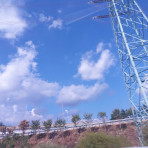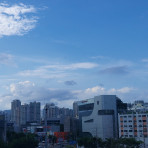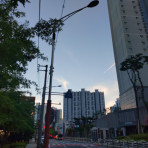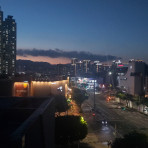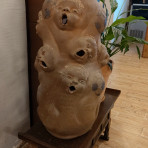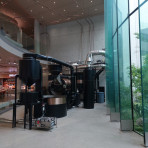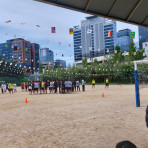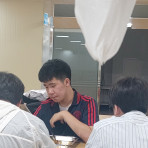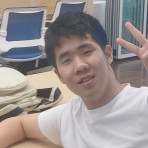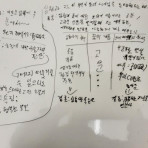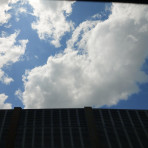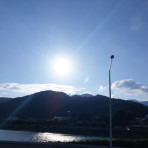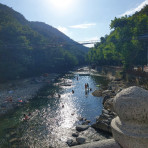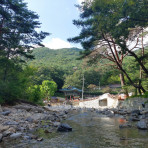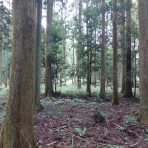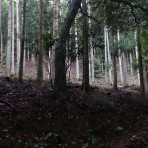Volkswagen reviews Xinjiang operations as abuse pressure mounts
본문
Wed, 14 Feb 2024 23:46:00 -0500

UPDATED at 11:55 A.M. ET on 02-15-2024
The German auto giant Volkswagen is facing renewed accusations of using Uyghur forced labor, as new evidence directly implicates its use of slave labor in the construction of a test track in Xinjiang, where brainwashing, surveillance and assimilation measures on employees were implemented.
The evidence from Adrian Zenz, a German scholar on Xinjiang internment camps, revealed that SAIC-Volkswagen’s test track in Turpan in Xinjiang was built using transferred Uyghur laborers.
SAIC-Volkswagen, headquartered in Anting, Shanghai, China, is a joint venture between China’s state-owned SAIC Motor and Volkswagen Group.
“The VW project subjected them to indoctrination, biometric data collection, assimilation and surveillance,” said Zenz in his post on X on Wednesday of his findings, which were also reported by the German newspaper Handelsblatt.
The track was built by the China Railway Engineering Corporation (CREC)’s Fourth Bureau between 2015 and 2019, under the oversight of the Xinjiang Test Track Project (XTTP), a joint entity of SAIC and CREC.
The entity not only employed Uyghur laborers through so-called “poverty alleviation” schemes, but participated in government work teams monitoring Uyghur families – hosting assimilatory “ethnic unity” activities, exhorting Uyghur children to study Chinese, and facilitating the transfer of Uyghur surplus laborers to state-arranged workplaces, Zenz wrote.
Future business direction
Volkswagen told Radio Free Asia on Thursday that it was in talks with its joint venture partner over the future of its Xinjiang operations.
“Volkswagen is currently in talks with the non-controlled joint venture SAIC-Volkswagen about the future direction of business activities in Xinjiang province,” a spokesperson said via email. “Different scenarios are being considered intensively.”
The company spokesperson went on to say that the test site in Turpan, which offers conditions for vehicle testing in an extremely dry and hot climate, was chosen by the SAIC-Volkswagen joint venture in 2013. But it was not possible to perform an ESG audit - an organizational assessment of risks related to environmental, social and governance domains by an independent party - on the Turpan test track as part of a previous ESG audit at the other joint-venture in Urumqi, because the two facilities belonged to different operating companies.
“Any audit of the test track in Turpan would have had to be coordinated with the JV partner SAIC and the responsible authorities in China separately from the ESG audit of the plant site and approved by them,” the spokesperson said. "The first priority was to audit the joint venture plant in Urumqi. We are in contact with our joint venture partner SAIC regarding the further procedure with regard to the test site.”
“To date, we have had no indications of human rights violations in connection with the test site in Turpan,” the spokesperson said. “Should new findings emerge or we receive any such information, we will take this as an opportunity - as in the past - to investigate them immediately and take appropriate action if necessary.”
Zenz pointed out in his X post that CREC and XTTP reports have stated openly that the project employed transferred Uyghur surplus laborers during the peak of the mass internments in 2017 and 2018.
One report outlined how the project employed Uyghur workers from Hotan and southern Xinjiang starting in 2017, as “transferred rural surplus laborers” of a scheme which Zenz believes to be the “coercive 2017-2019 plan” under the-then Xinjiang party secretary Chen Quanguo to transfer over 100,000 Uyghurs from poor backgrounds.
Another report in May 2017, when the mass internments started, described the XTTP’s intensified surveillance of employees, using early pre-shift “speeches” to strengthen their ideological awareness. The project also collected iris scans of employees and passed their information to the security services.
By 2019, the XTTP was dissolved and the track is currently managed by the SAIC-Volkswagen (Turpan) Test Center, which provides a range of services, including vehicle maintenance.
Learning from the past
Shing Sai Kwong, a Taiwanese political commentator in Germany, called Volkswagen’s state of denial despicable despite the solid evidence available, and urged the German authorities to take action.
“Volkswagen hasn’t learnt the lessons of history,” he said, referring to the automaker’s dark past of using forced labor during Nazi Germany in the second World War.
In this May 26, 1938 file photo, German Nazi leader Adolf Hitler speaks at the opening ceremony of the Volkswagen car factory in Fallersleben, Lower Saxony, Germany. (AP)
“It is killing innocent people like the Uyghurs in Xinjiang, our human rights, and democracy and freedom. Of course, the judiciary can investigate. If not for the media and scholars who have a conscience and conduct their own investigation, such matters will never be discovered,” said Shing.
“Volkswagen can afford to be arrogant and lie today, [as] the German government is also quite slack. Therefore, voters like us need to monitor and keep tabs,” Shing added.
Gheyyur Qurban, director of the youth department of the World Uyghur Congress, said responses from Volkswagen have been superficial and the company continued to conceal the truth.
“We have contacted the top leadership of Volkswagen through various means and asked them to withdraw from East Turkistan,” she said.
“On the surface, they expressed their concern about this issue, but they used the former human rights commissioner of the German federal government [Markus] Löning to conduct a so-called review and concluded that ‘there is no forced labor in Volkswagen's supply chain.’ This so-called audit result is not recognized at all, whether it is in the German political, economic fields or internationally.”
Since Germany’s supply chain law took effect at the beginning of 2023, Qurban said eight cases of German companies – including Volkswagen – involved in Uyghur forced labor have been reported.
“One sees many multinational companies are already very uneasy,” she added.
Chemical giant BASF, whose joint venture partner in Xinjiang was found to be involved in using forced labor, announced last week that they were exiting the operations, which German lawmakers expect will pressure more companies to follow suit.
Zenz said the Volkswagen findings are worse than those he uncovered for BASF's Markor Chemical joint venture partner, because they implicate a Volkswagen-controlled entity not only in “activities aiding state atrocities, but also in subjecting its own staff to forced labor, assimilation, surveillance and indoctrination.”
Translated by RFA staff. Additional reporting by Shahrezad Ghayrat for RFA Uyghur. Edited by Taejun Kang and Mike Firn.
Updated to include a Volkswagen spokeperson's emailed comments to RFA on Thursday.

UPDATED at 11:55 A.M. ET on 02-15-2024
The German auto giant Volkswagen is facing renewed accusations of using Uyghur forced labor, as new evidence directly implicates its use of slave labor in the construction of a test track in Xinjiang, where brainwashing, surveillance and assimilation measures on employees were implemented.
The evidence from Adrian Zenz, a German scholar on Xinjiang internment camps, revealed that SAIC-Volkswagen’s test track in Turpan in Xinjiang was built using transferred Uyghur laborers.
SAIC-Volkswagen, headquartered in Anting, Shanghai, China, is a joint venture between China’s state-owned SAIC Motor and Volkswagen Group.
“The VW project subjected them to indoctrination, biometric data collection, assimilation and surveillance,” said Zenz in his post on X on Wednesday of his findings, which were also reported by the German newspaper Handelsblatt.
The track was built by the China Railway Engineering Corporation (CREC)’s Fourth Bureau between 2015 and 2019, under the oversight of the Xinjiang Test Track Project (XTTP), a joint entity of SAIC and CREC.
The entity not only employed Uyghur laborers through so-called “poverty alleviation” schemes, but participated in government work teams monitoring Uyghur families – hosting assimilatory “ethnic unity” activities, exhorting Uyghur children to study Chinese, and facilitating the transfer of Uyghur surplus laborers to state-arranged workplaces, Zenz wrote.
Future business direction
Volkswagen told Radio Free Asia on Thursday that it was in talks with its joint venture partner over the future of its Xinjiang operations.
“Volkswagen is currently in talks with the non-controlled joint venture SAIC-Volkswagen about the future direction of business activities in Xinjiang province,” a spokesperson said via email. “Different scenarios are being considered intensively.”
The company spokesperson went on to say that the test site in Turpan, which offers conditions for vehicle testing in an extremely dry and hot climate, was chosen by the SAIC-Volkswagen joint venture in 2013. But it was not possible to perform an ESG audit - an organizational assessment of risks related to environmental, social and governance domains by an independent party - on the Turpan test track as part of a previous ESG audit at the other joint-venture in Urumqi, because the two facilities belonged to different operating companies.
“Any audit of the test track in Turpan would have had to be coordinated with the JV partner SAIC and the responsible authorities in China separately from the ESG audit of the plant site and approved by them,” the spokesperson said. "The first priority was to audit the joint venture plant in Urumqi. We are in contact with our joint venture partner SAIC regarding the further procedure with regard to the test site.”
“To date, we have had no indications of human rights violations in connection with the test site in Turpan,” the spokesperson said. “Should new findings emerge or we receive any such information, we will take this as an opportunity - as in the past - to investigate them immediately and take appropriate action if necessary.”
Zenz pointed out in his X post that CREC and XTTP reports have stated openly that the project employed transferred Uyghur surplus laborers during the peak of the mass internments in 2017 and 2018.
One report outlined how the project employed Uyghur workers from Hotan and southern Xinjiang starting in 2017, as “transferred rural surplus laborers” of a scheme which Zenz believes to be the “coercive 2017-2019 plan” under the-then Xinjiang party secretary Chen Quanguo to transfer over 100,000 Uyghurs from poor backgrounds.
Another report in May 2017, when the mass internments started, described the XTTP’s intensified surveillance of employees, using early pre-shift “speeches” to strengthen their ideological awareness. The project also collected iris scans of employees and passed their information to the security services.
By 2019, the XTTP was dissolved and the track is currently managed by the SAIC-Volkswagen (Turpan) Test Center, which provides a range of services, including vehicle maintenance.
Learning from the past
Shing Sai Kwong, a Taiwanese political commentator in Germany, called Volkswagen’s state of denial despicable despite the solid evidence available, and urged the German authorities to take action.
“Volkswagen hasn’t learnt the lessons of history,” he said, referring to the automaker’s dark past of using forced labor during Nazi Germany in the second World War.
In this May 26, 1938 file photo, German Nazi leader Adolf Hitler speaks at the opening ceremony of the Volkswagen car factory in Fallersleben, Lower Saxony, Germany. (AP)
“It is killing innocent people like the Uyghurs in Xinjiang, our human rights, and democracy and freedom. Of course, the judiciary can investigate. If not for the media and scholars who have a conscience and conduct their own investigation, such matters will never be discovered,” said Shing.
“Volkswagen can afford to be arrogant and lie today, [as] the German government is also quite slack. Therefore, voters like us need to monitor and keep tabs,” Shing added.
Gheyyur Qurban, director of the youth department of the World Uyghur Congress, said responses from Volkswagen have been superficial and the company continued to conceal the truth.
“We have contacted the top leadership of Volkswagen through various means and asked them to withdraw from East Turkistan,” she said.
“On the surface, they expressed their concern about this issue, but they used the former human rights commissioner of the German federal government [Markus] Löning to conduct a so-called review and concluded that ‘there is no forced labor in Volkswagen's supply chain.’ This so-called audit result is not recognized at all, whether it is in the German political, economic fields or internationally.”
Since Germany’s supply chain law took effect at the beginning of 2023, Qurban said eight cases of German companies – including Volkswagen – involved in Uyghur forced labor have been reported.
“One sees many multinational companies are already very uneasy,” she added.
Chemical giant BASF, whose joint venture partner in Xinjiang was found to be involved in using forced labor, announced last week that they were exiting the operations, which German lawmakers expect will pressure more companies to follow suit.
Zenz said the Volkswagen findings are worse than those he uncovered for BASF's Markor Chemical joint venture partner, because they implicate a Volkswagen-controlled entity not only in “activities aiding state atrocities, but also in subjecting its own staff to forced labor, assimilation, surveillance and indoctrination.”
Translated by RFA staff. Additional reporting by Shahrezad Ghayrat for RFA Uyghur. Edited by Taejun Kang and Mike Firn.
Updated to include a Volkswagen spokeperson's emailed comments to RFA on Thursday.
좋아요3
이 글을 좋아요하셨습니다
관련링크
등록된 댓글이 없습니다.






